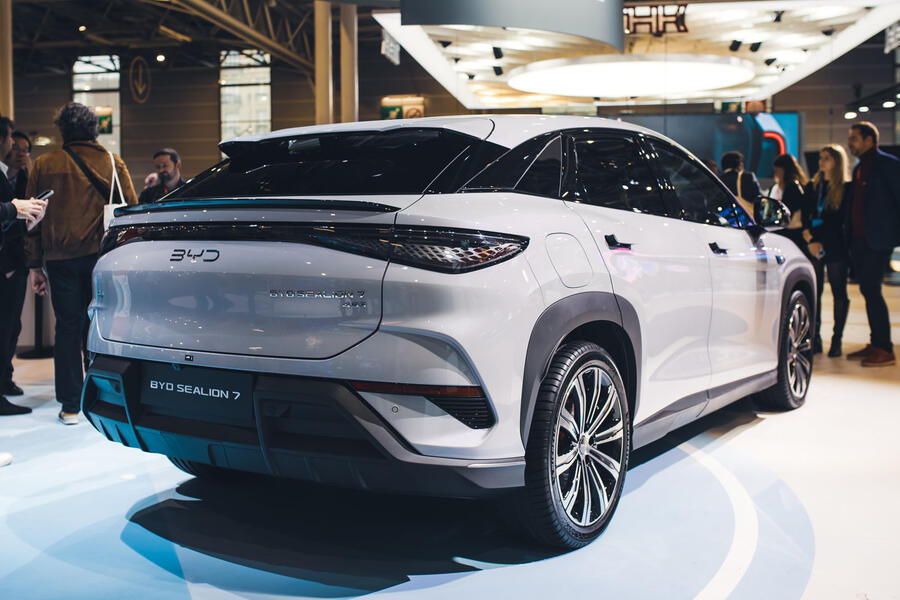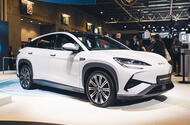Electric family SUV is one of six new models the Chinese giant will introduce in Europe by 2025
BYD has announced its new Sealion 7 SUV will start from £44,990, undercutting the rival Tesla Model Y by £2000.
It's the brand’s first European model to use the new 'Evo' development of the architecture that underpins the existing Atto 3 crossover, Dolphin hatchback and Seal saloon, named e-Platform 3.0.
It uses cell-to-body construction (in which battery cells are mounted directly to the chassis) with a lithium-iron-phosphate (LFP) battery and can support a range of motor configurations.
The entry-level Sealion 7 Comfort gets a single 308bhp, 280lb ft motor mounted on its rear axle, plus an 82.5kWh battery that gives a range of 300 miles between charges. The lightest variant weighs 2225kg and can dispatch the 0-62mph sprint in 6.7sec.
The middle-rung Design costs £49,290 and adds a 215bhp motor to the front axle. This gives four-wheel drive and outputs of 523bhp and 509lb ft, cutting the car's 0-62mph time to 4.5sec. However, it also increases the car’s mass to 2340kg and reduces its range to 283 miles.Â
The range-topping Excellence is £57,290 and uses the same 523bhp powertrain, but it gets a larger, 91.3kWh battery, boosting its range to 312 miles. With this larger battery and extra interior kit (including nappa leather seats and a head-up display), the Sealion 7 weighs 2435kg. Nonetheless, it can hit 62mph in the same 4.5sec as the Design.
Both the Comfort and Design cars can be charged at a rate of up to 150kW on a DC connection, taking 32 minutes to go from 10-80%. The Excellence is upgraded to a 230kW peak, cutting that time to 24 minutes.

A heat pump (which more efficiently generates heat for the cabin than a conventional fan heater, boosting the car's range in cold conditions) is fitted to all versions as standard.
Inside, the Sealion 7 gets a 15.6in infotainment touchscreen that is capable of rotating between portrait and landscape orientations and features a new voice control system.
This is said to be capable of detecting which of the five occupants is speaking from four zones inside the car, allowing the system to make tweaks specific to where the person is sitting. Asking the car to reduce the temperature from the rear seats will tweak the rear climate zone, for instance.
The Sealion 7 is also fitted with a 10.25in instrument display, four USB ports (two up front and two in the back) and a vehicle-to-load socket, allowing the car’s battery to power external devices up to 3.3kW.
Boot space is claimed to measure 520 litres with the rear seats up and 1789 litres with them folded down.
UK deliveries of the Sealion 7 are due to begin early next year.
It is one of six new models (three battery-electric cars and three plug-in hybrids) that the Chinese brand will be launching in Europe over the next 14 months.


